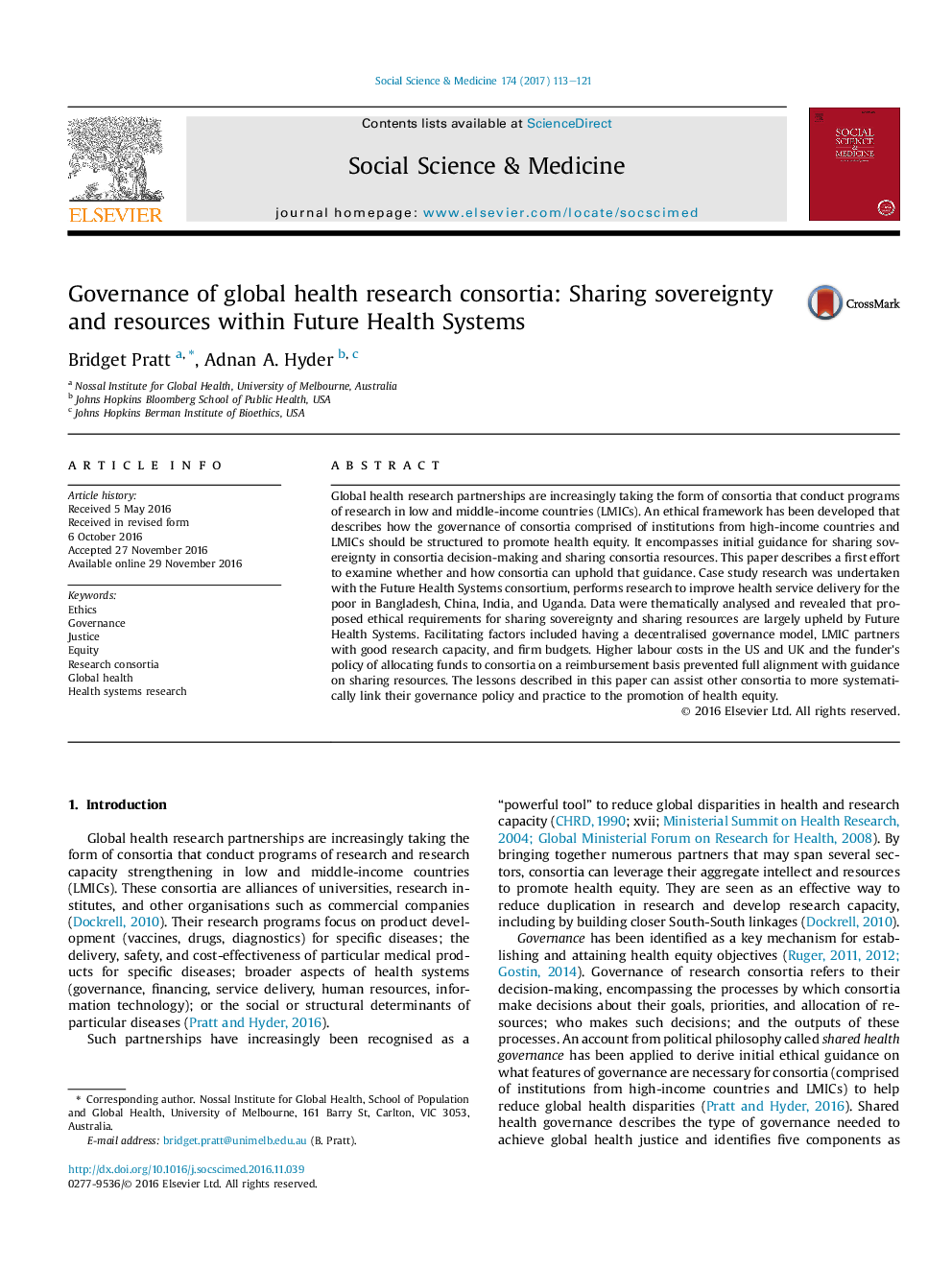| Article ID | Journal | Published Year | Pages | File Type |
|---|---|---|---|---|
| 5046818 | Social Science & Medicine | 2017 | 9 Pages |
â¢Governance of global health research consortia should promote health equity.â¢Doing so requires consortia share sovereignty in decision-making and share resources.â¢Decentralised operations and firm budgets promote sharing sovereignty and resources.â¢High-income country labour costs can impede fairly sharing consortia resources.â¢Funders' policies can empower or disempower equity-oriented consortia governance.
Global health research partnerships are increasingly taking the form of consortia that conduct programs of research in low and middle-income countries (LMICs). An ethical framework has been developed that describes how the governance of consortia comprised of institutions from high-income countries and LMICs should be structured to promote health equity. It encompasses initial guidance for sharing sovereignty in consortia decision-making and sharing consortia resources. This paper describes a first effort to examine whether and how consortia can uphold that guidance. Case study research was undertaken with the Future Health Systems consortium, performs research to improve health service delivery for the poor in Bangladesh, China, India, and Uganda. Data were thematically analysed and revealed that proposed ethical requirements for sharing sovereignty and sharing resources are largely upheld by Future Health Systems. Facilitating factors included having a decentralised governance model, LMIC partners with good research capacity, and firm budgets. Higher labour costs in the US and UK and the funder's policy of allocating funds to consortia on a reimbursement basis prevented full alignment with guidance on sharing resources. The lessons described in this paper can assist other consortia to more systematically link their governance policy and practice to the promotion of health equity.
